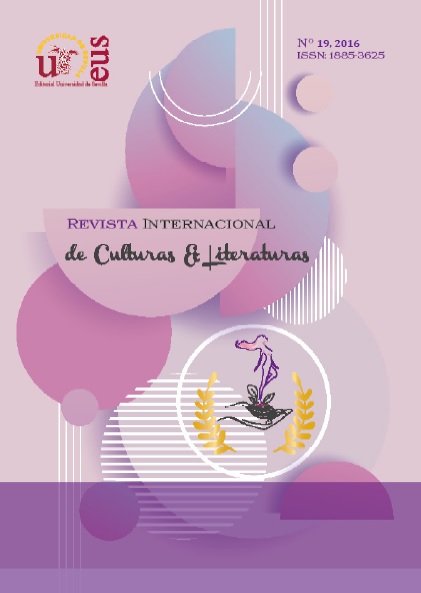Theatrical teaching and learning of Italian as a foreign language
DOI:
https://doi.org/10.12795/RICL.2016.i19.20Keywords:
didattica teatrale, glottodidattica, drammatizzazione, italianoAbstract
Theatrical teaching and learning of Italian as a foreign languageDownloads
References
Bailin, S., “Critical Thinking and Drama Education”, Research in Drama Education: The Journal of Applied Theatre and Performance, 3, (1998), pp. 145-153.
Benni, S., “Torquato abbandonato” il Venerdì di Repubblica, 13-8-2010, n. 1169.
Byram, M., Fleming, M., Language Learning in Intercultural Perspective. Approaches through drama and ethnography, Cambrdige, Cambridge University Press, 2010.
Canale M., Swain M., “Theoretical Bases of Communicative Approaches to Second Language Teaching and Testing”, Applied Linguistics, 1 (1980), pp.1- 47. Internet.
http://ibatefl.com/wp-content/uploads/2012/08/CLT-Canale-Swain.pdfCarofiglio,
G., “Giulia”, Non esiste saggezza, Milano, Rizzoli, 2010, pp. 57-68.
Di Martino, E., Di Sabato, B., “Playing a Part: Drama in the Language Classroom”, Studying Language through Literature, Newcastle upon Tyne, Cambridge Scholars Publishing, 2014.
Geertz, C., The Interpretation of Cultures, New York, Basic Books, Inc., Publishers, 1972.
Magnani, M., “Il teatro nella glottodidattica: un’esperienza tra teoria e prassi” Internet.
-6-2016. http://www.ledonline.it/linguae/allegati/linguae0202magnani.pdf
Maraini, D., Per proteggerti meglio, figlia mia, Roma, Giulio Perrone Editore, 2013.
Pross, E. E. “Using Theatre Games to Enhance Second Language Acquisition in Bilingual Education”, Bilinugal Review / La Revista Bilingüe, 13, (1986), pp. 35- 40.
Schewe, M., Shaw, P., a cura di, Towards Drama as a Method in the Foreign Language Classroom, Frankfurt, Peter Lang, 1993.
Schmidt, P., “Intercultural theatre through a foreign language”, Language Learning in Intercultural Perspective, Cambrdige, Cambridge University Press, 2010, pp. 193- 203.
Stinson, M., Winston, L., “Drama education and second language learning: a growing field of practice and research”, Research in Drama Education: The Journal of Applied Theatre and Performance, 11 (2011), pp. 479-488.
Internet. http://www.tandfonline.com/doi/abs/10.1080/13569783.2011.616395
Wagner, B. J. Educational Drama and Language Arts, Portsmooth, Hainemann, 1998.
Wagner, B. J., “A Theoretical Framework for Educational Drama”, Educational Drama , and
Language Arts, Portsmooth, Hainemann, 1998, pp. 15-33.
Wagner, B. J., Dorothy Heathcote. Drama as a Learning Medium, Portsmouth, Heinemann, 1999.

